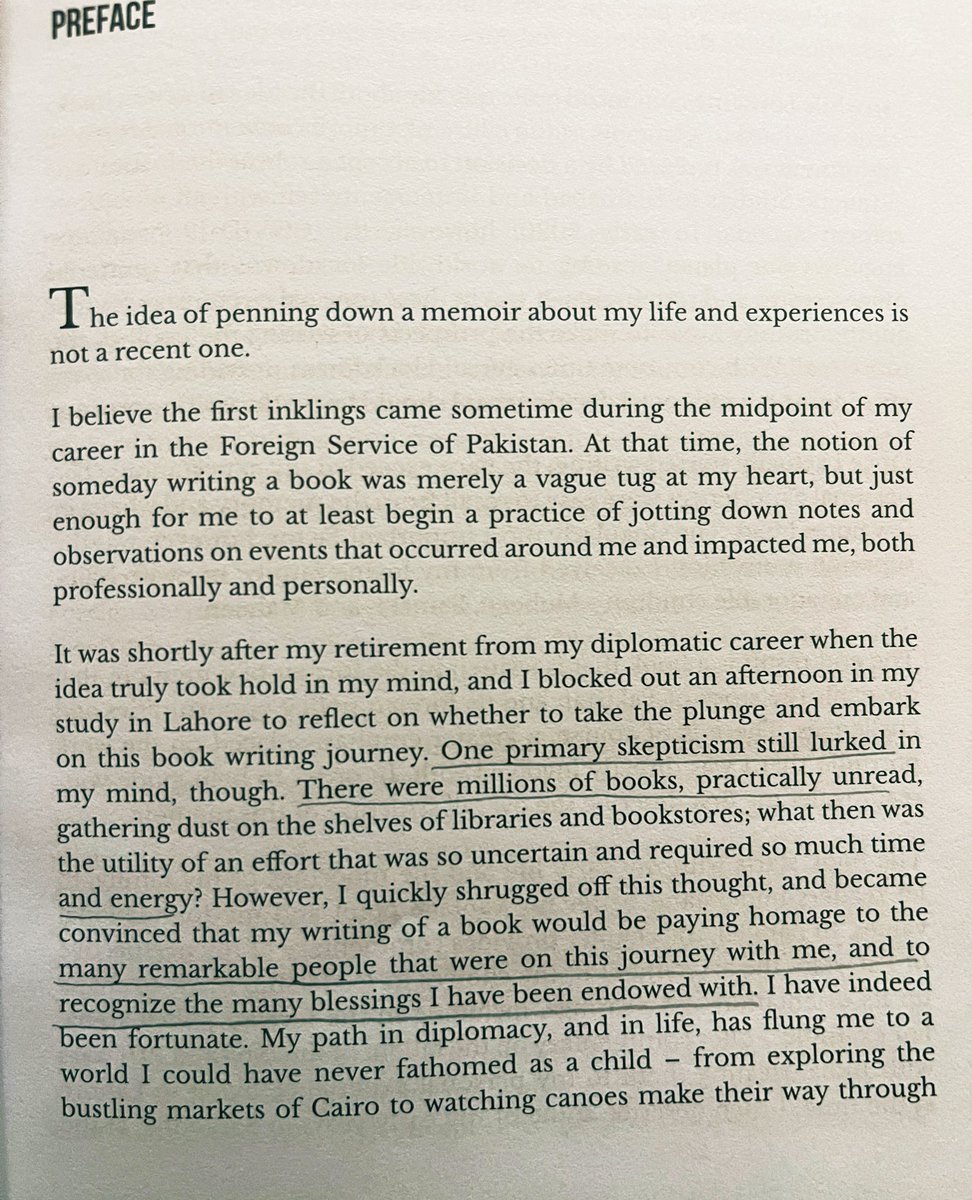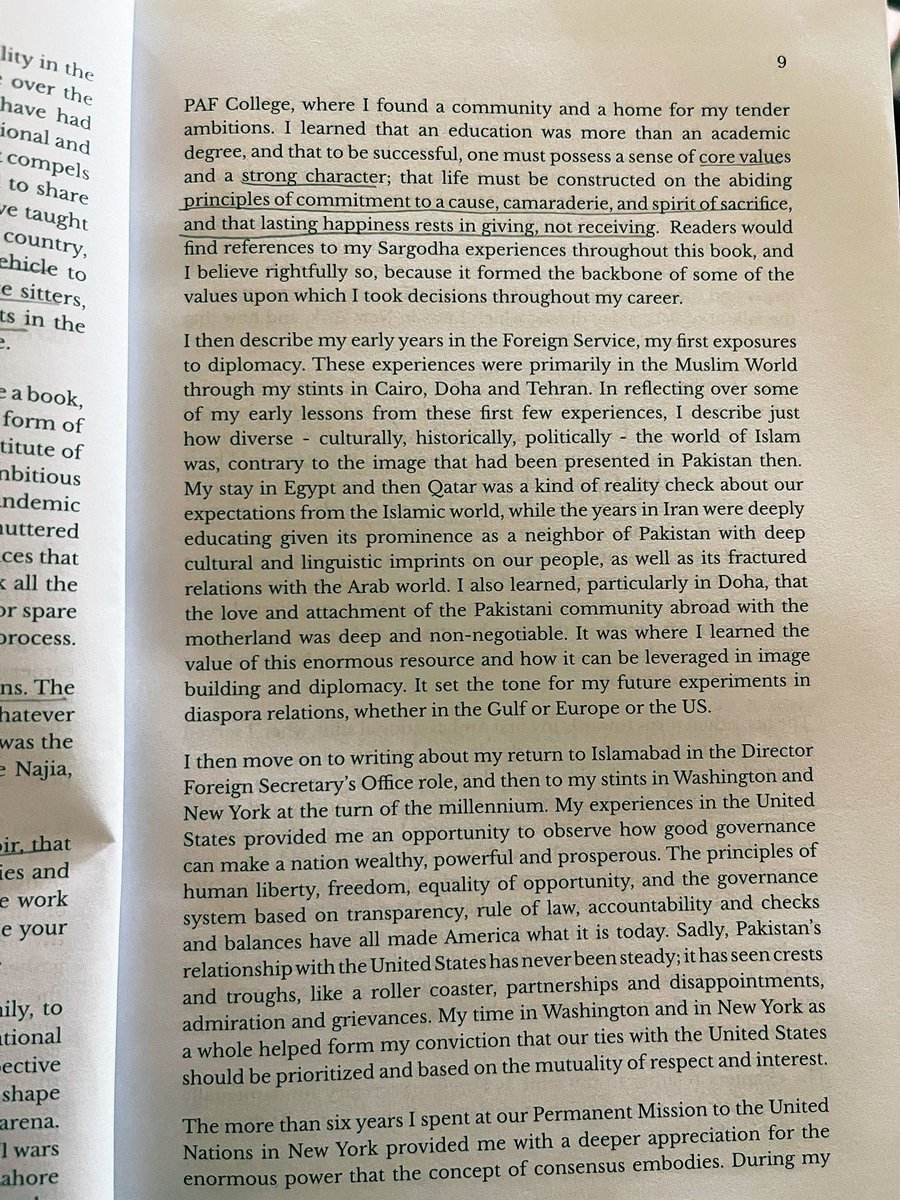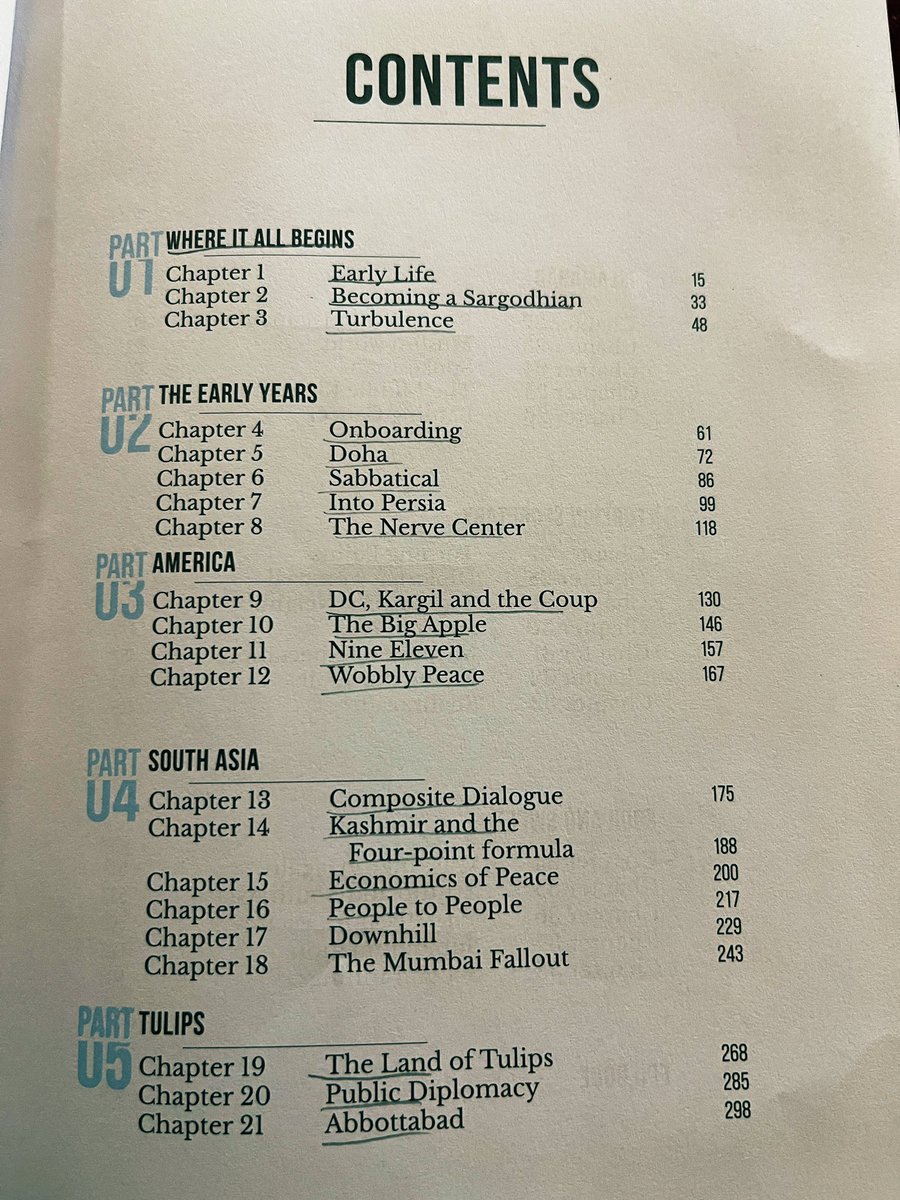
THREAD—
150/1000 #1000booksby2030
▪️Title: #DiplomaticFootprints
▪️Genre: Memoir
▪️Published: 2021
▪️Author: Aizaz Ahmad Chaudhary
▪️Print: Hardcover
▪️Description: Offers commentary & first hand accounts on Pakistan’s FP from perspective of an experienced diplomat. @aizaz1101
150/1000 #1000booksby2030
▪️Title: #DiplomaticFootprints
▪️Genre: Memoir
▪️Published: 2021
▪️Author: Aizaz Ahmad Chaudhary
▪️Print: Hardcover
▪️Description: Offers commentary & first hand accounts on Pakistan’s FP from perspective of an experienced diplomat. @aizaz1101

FP decision-making entails making difficult choices; sometimes they fare well, and sometimes not. Where and why did Pakistan succeed in its foreign policy decisions, and where and why did it not? How did it navigate its alliances, cope with deceptions & disappointments? 

How effectively did the Foreign Service of Pakistan assist the country's leadership in navigating Pakistan's ties with the outside world, and particularly with some of its most sensitive relationships, including India, China, the US, Afghanistan, and others?
40 years of FP experience. This is a must read for anyone interested in diplomacy or foreign affairs. 

Sir, @aizaz1101 indeed myself and thousands of other readers are truly obliged to you for writing this masterpiece. Surely, it will prove to be skill set for students of foreign affairs. 

Perhaps that is what compels me to write a memoir - to share these lived experiences, and to share the hard-earned wisdom and knowledge these experiences have taught me; and to do it all through the lens of the pathway of my own country, Pakistan.
I thought it also would provide me with a useful vehicle to share my perspectives with thought leaders, mobilize the fence sitters, and if I am lucky, perhaps even influence the course of events in the direction that I think is right for our country and for our people. 

I learned that an education was more than an academic degree, and that to be successful, one must possess a sense of core values & a strong character; that life must be constructed on the abiding principles of commitment to a cause, camaraderie, & spirit of sacrifice. + 

And that lasting happiness rests in giving, not receiving.
The principles of human liberty, freedom, equality of opportunity, & governance system based on transparency, rule of law, accountability & checks & balances have all made America what it is today.
#1000booksby2030
#1000booksby2030

I dealt with a thriving peace process, and found just how much India and Pakistan could have benefitted had they followed the path of good-neighborly relations, such as the relationship shared by the US and Canada. 

I switched university majors and subjects a number of times, and had my moments of doubt about where my career would lead me. The only thing I could control, I did - I threw myself at the work - and I hope that the readers will take away from my experience that there are rarely +
any shortcuts to success, and that while luck and timing do play a role, hard work is seldom wasted. Most importantly, I hope they will take away from this book that when you live a life based on principles, on gratitude, and on a genuine desire to contribute towards a goal +
larger than yourself, then somehow the universe opens doors and opportunities.
I have avoided sensationalizing issues, and have discussed matters based on facts and my own dispassionate assessments. Important to know here is that although I took copious notes in meetings, the dialogue presented is a close approximation of the conversations that took place.
• • •
Missing some Tweet in this thread? You can try to
force a refresh










